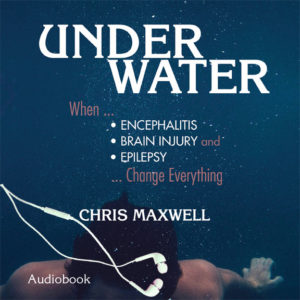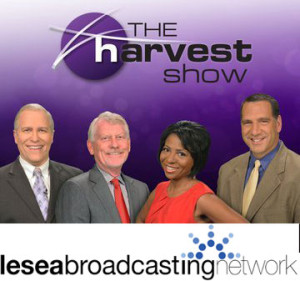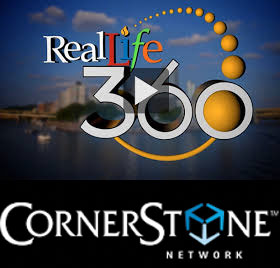From the book Equilibrium: 31 Ways to Stay Balanced on Life’s Uneven Surfaces.
The night before I wrote this chapter, I arrived early at a church facility for a prayer meeting. The time with others would be encouraging. The time alone before they arrived would also be healing.
The sanctuary was empty.
No people. No music.
No lights until I clicked them on. No noise until my tennis shoes tapped in their typical rhythm.
I began to write names on a screen of people who’d asked for prayer. Wondering who else would come into the room and mention these people aloud to the Listener, I tried to write so the names could be noticed and understood. I began to remember names previously placed there. Processing how some of our petitions to God were answered and how some of our requests didn’t end as we hoped, I wrote a few names again.
I began to do what I like to do in prayer meetings, even before anyone else arrives. I walked. I thought.
I asked God to help me pray, to teach me to pray, to guide my dialogue with Him and His people.
I wrote. I confessed. I waited, while approaching the One who knows me so well and is still madly in love with me.
Soon my friends arrived, and we prayed together. What made that evening possible? I planned and scheduled a shift, a turn, a rewiring. As I wrote previously, times when prayer is all we are doing is when we choose to pause, to step away from our hurry, to shift our schedule, to enter a prayer closet or a sanctuary or a tree house or an office or a plane or a boat or a horse or a monastery and do one thing. We pray. In a variety of ways applying many spiritual disciplines, we pray.
Well, pause has been a word I have written and spoken about often. I have a series of books related to that theme. I hosted a show based on that subject. And now, here it is again.
I can’t leave it alone.
It won’t leave me alone.
Pausing can be a type of prayer. It is a choice we make. Amid the hurry and among the demands and around the chaos, we select to call a timeout. We choose to breathe deeply and reflect. We decide to dribble the ball up court slowly this time after all the recent fast breaks. We agree to eat a meal slowly—chewing, tasting, enjoying, swallowing, and refusing to rush too suddenly for the next bite. It is finding the still waters and restoring our wounded, worried, hurried souls. It is being still and knowing, as best we can, He is God.
So, yes, these paragraphs are continuations of the previous chapter. Pause should be a part of every chapter, every day, every moment.
But it, to me, is done better when seen as a choice to include my Creator in each conversation and every interaction. And, yes, let us return to praying no matter what else we are doing and praying when that is all we are doing.










This is an inspiring word. I like how you talked about how pausing is a type of prayer. There are a lot of people including me who forget that.
Man, I truly consider myself as someone who is fast-paced. This sure can be a dangerous trait of my life. Reading your post reminds that it’s good to stop and slow down every once in a while. Whatever it is I’m trying to rush and get done will be there I can relax especially with prayer. Sometimes it can be easy to think we have to pray a specific prayer or pray in a certain way but sometimes I feel like the most fruitful prayer is just sitting in silence in God’s presence.
This is really good. Something that stood out to me was that you referred to God as “The Listener.” It’s just amazing to me how many names our Great God has. Some of the many names are, “Creator,” “Yahweh,” “Abba,” etc. and now we have the Listener. It just continues to amaze me. Each of the names God has are just a part of His character. Pausing is very important and something I need to learn. I just need to pause to be with Him and listen to HIm.
It is so important to remind ourselves that the hurry of life is not the only important thing. The necessity of pausing increases as the hurry of our lives does as well. Pausing with Jesus and bringing intent to these moments we share with Him helps not that relationship, but the one within ourselves as well.
What I love about this blog is the analogies you used when describing the action of pausing. It reminds me of living in the moment and not being so focused on the future, but enjoying the here and now. I believe doing this could help with our hurried lives and worried minds because a lot of what we worry about is things to come/the future.
I think the idea of prayer in every instance is key to our relationship with God. Wether we are alone or with a group of others praying is something we should all be doing. As well as paying with our creator and taking the time to slow down and really try to live in the now.
I really loved how you emphasized the power of pausing and how pausing can be a type of prayer. We do not always have to be physically speaking and asking to be praying. We must just pause and sit in His presence. I believe it is important for us to pray no matter what else we are doing!
I really enjoyed reading this blog post! It is such a good reminder that in the chaos we are to pause and acknowledge the one who calms storms or let’s them rage! The power of prayer and pausing is so powerful and I need to remember to pause and pray during chaos.
Prayer is not attractive in the church today. Neither is pausing. In our hustle culture we frown upon taking time to be “unproductive.” Why pause and pray when there are so many more pressing things that you could be accomplishing and you can always pray and pause later. This mindset is rampant in the church world today and causes us to view our time very systematically. We can lose the relationship part in this because there is no time to talk and spend time with God when we could be accomplishing so many more things for Him. To choose to pause and choose to pray makes everything shift in what our priorities are. How much different would our lives live out if pausing was an important time of each day that we kept set in the schedule?
I feel like I don’t deserve to pause. I ‘pause’ all the time – I often get distracted, and I don’t do what I need to get done in the time that I allotted. So, I don’t feel like I deserve to pause because I’m made myself rushed. I don’t know how I got here, but I’ve gotten to the place where I focus on the next thing. I’m not present often. My mind runs at a million miles an hour, and I don’t know how to slow down. And when I try to slow down, I don’t think I do a good job, and then continue to tell myself that I shouldn’t slow down. I’m not good a pausing, and maybe that’s why I don’t do it. I’m afraid I’m not pausing well. Maybe it’s the perfectionistic part of me, but I’m tired of my mind telling me I can’t slow down. This is a really challenging word because it’s what I like to hear – I like knowing that I can slow down. And yet I don’t. But I want too.
I have always been a busy person. I struggle to slow down and rest. I find myself needing to be productive, even in my “rest”. I will “rest” from school, but clean around the house. Other days, I will “rest” from working, but still find myself thinking about everything that needs to be done. I believe God is growing me in this area, but it is a constant struggle, especially in the midst of such a busy season of my life.
9-19-23 To Chrismaxell
I tried to put in my comments, but it said I didn’t have the correct e-mail.
I really enjoyed the Stacey Cope podcast. I can really relate to his testimony.
I feel at times like I can’t take the pressures of life anymore. Then I realize I need to let Jesus have it. He is wanting to help us; all we must do is let Him. The devil is always going to be putting out traps to trip us up. The only way to defeat the devil is with Jesus Christ. I am getting caught up with my reading of Pause With Jesus. I read the podcast and I agree we need to slow down and take time to let a pause be a form of praying. Take care Chris and I am trying to get caught up.